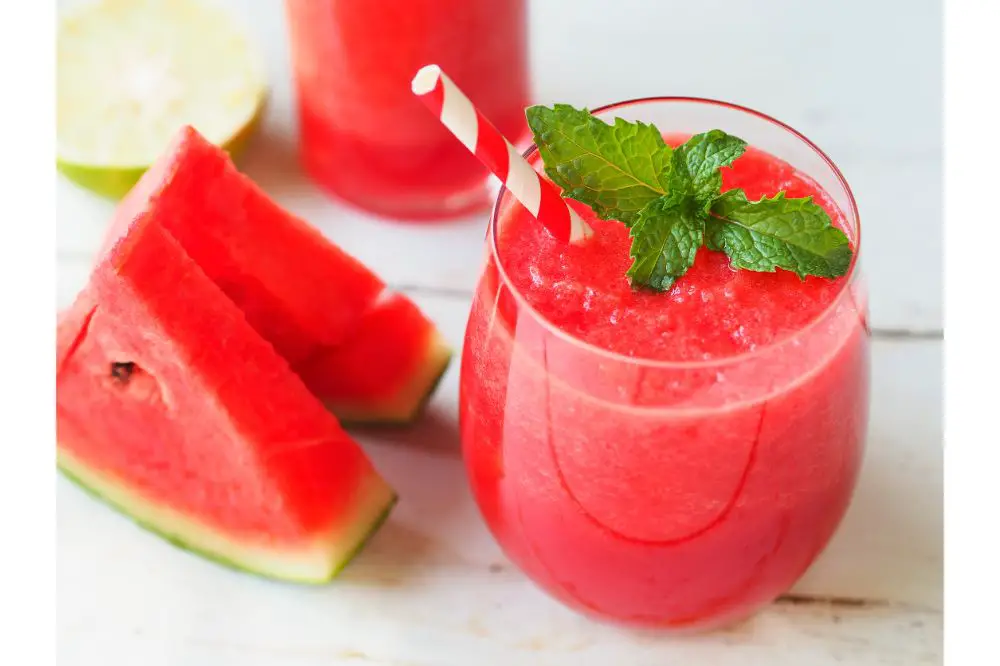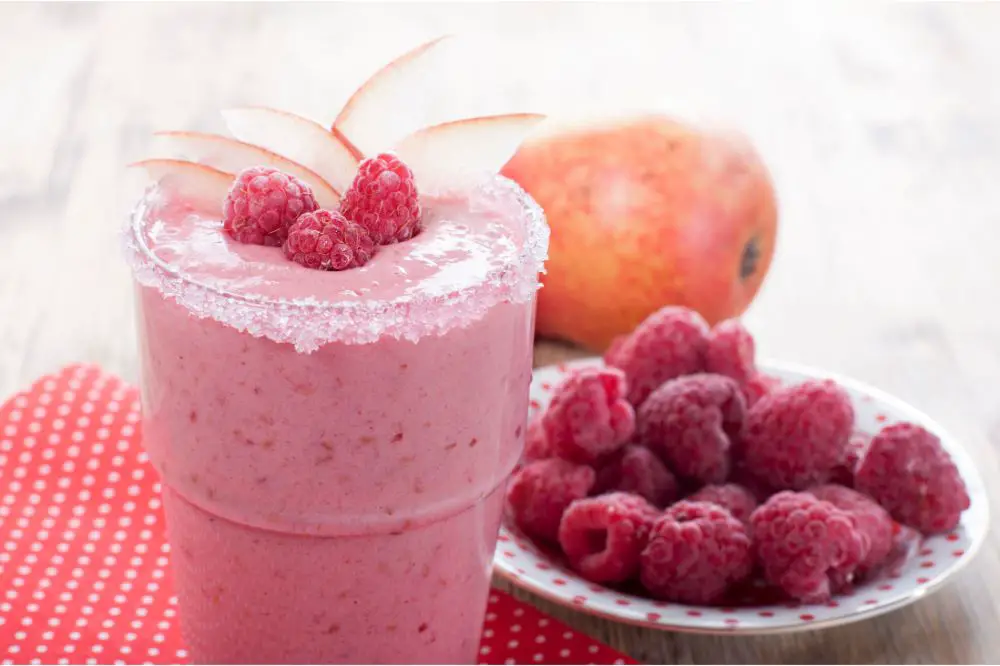Smoothies are a popular beverage choice for people of all ages. Not only are they tasty, but they are also packed with healthy nutrients. But what happens when you freeze them? Does freezing smoothies cause a significant loss of nutrients?
In this article, we’ll explore what happens to nutrient content when freezing smoothies, and provide tips for preserving nutrients.
Nutrient Content of Smoothies
Smoothies are a great way to have a nutritious snack or meal on the go. Most of the time, they are composed of fruits and vegetables, as well as dairy and other ingredients. Not only do they provide essential vitamins and minerals, but they also have beneficial fiber and antioxidants. But what happens when you freeze smoothies? Can freezing smoothies lead to nutrient losses?
When it comes to nutrients, smoothies are a great source of vitamins, minerals, and antioxidants. They are also quite nutrient-dense, with a single smoothie containing a variety of nutrients. These nutrients can come from the fruits, vegetables, dairy, and other ingredients in the smoothie.
When smoothies are frozen, some of the nutrients are affected. Vitamins C and B are water-soluble, meaning they dissolve in water. So, when the smoothie is frozen, these vitamins can be lost. Folate, a B vitamin, is also water-soluble, so it is also susceptible to nutrient loss when frozen. Other nutrients, such as the minerals potassium and calcium, are not as affected by freezing.
The amount of nutrient loss depends on how long the smoothie is frozen and how it is stored. Generally, short-term freezing does not result in significant nutrient losses, but long-term freezing can. The best way to preserve nutrient content is to store smoothies in shallow containers and freeze them as quickly as possible.
What Happens When Smoothies are Frozen?
When smoothies are frozen, the physical makeup of the food changes significantly. As the temperature of the smoothie decreases, the water molecules move more slowly and the structure of the food changes. This causes the smoothie to become denser and firmer. As the temperature decreases further, the molecules will eventually form a solid block of ice.
The freezing process also causes some of the ingredients in the smoothie to separate out. This is due to the fact that different ingredients have different freezing points. For example, some of the sugar and other sweeteners in the smoothie may freeze before the other ingredients. This separation can lead to a change in the flavor of the smoothie.
The most important factor to consider is the effect that freezing has on the nutrient content of the smoothie. When smoothies are frozen, some of the nutrients can be lost. This is because the freezing process causes some of the nutrients to leach out of the smoothie and into the surrounding environment. This means that the smoothie will have fewer nutrients than it did before it was frozen.
The Effect of Freezing on Nutrient Content
It is possible to freeze smoothies and still preserve some of the nutrients; however, certain vitamins and minerals can be lost in the process. Depending on the ingredients and duration of freezing, the nutrient content of the smoothie can vary.
The most susceptible nutrients to freezing are those that are water-soluble, such as Vitamin C, Vitamin B, and Folate. These vitamins are easily destroyed by the cold temperatures and can be lost in the process.
On the other hand, fat-soluble vitamins such as Vitamin A, D, and E are less affected by freezing. Protein, fiber and minerals are not as easily damaged by freezing and generally remain intact.
The nutrient losses caused by freezing can be significant, depending on the ingredients used and the duration of freezing. For example, a smoothie made with fresh fruit will lose some of its Vitamin C content after freezing, while one made with fruit juice will lose less nutrients.
It is important to note that nutrient losses due to freezing are not always significant, and that freezing a smoothie can be a great way to preserve its nutritional content. There are some tips that can help to preserve the nutrient content of a frozen smoothie. For example, blanching or steaming vegetables prior to freezing can help preserve some of the vitamins and minerals.
Additionally, adding a source of fat such as nuts, seeds, or avocado to the smoothie can help protect the more delicate vitamins.

What Nutrients are Affected?
When it comes to freezing smoothies, one of the main questions is what nutrients are affected by the freezing process. Generally, freezing smoothies will result in some nutrient loss.
The most affected nutrients are those that are heat-sensitive, such as vitamins A, B, C and E, as well as volatile compounds like phytonutrients. The freezing process can also cause some proteins and enzymes to denature, resulting in a decrease in their nutritional value.
Additionally, freezing can cause some of the water-soluble vitamins to leach out into the surrounding liquid, resulting in a further decline in the overall nutrient content of the smoothie.
It is also important to note that the amount of nutrient loss will depend on the type of smoothie and its ingredients. For example, a smoothie that contains a high amount of fresh fruit and vegetables is likely to retain more of its nutritional content than one that has been heavily processed or contains more artificial ingredients. Additionally, the length of time that the smoothie has been frozen can also affect its nutrient content.
Overall, while freezing smoothies can result in some nutrient loss, it is important to remember that the amount of loss is usually minimal. By taking certain steps to preserve the nutrient content of the smoothie, such as using fresh ingredients and freezing it in smaller portions, it is possible to minimize nutrient loss and still enjoy the convenience of frozen smoothies.
Are the Nutrient Losses Significant?
When it comes to nutrient loss, it’s important to remember that freezing smoothies does not completely destroy all the nutrients. In fact, some nutrients may actually be preserved when smoothies are frozen. However, it does depend on the vitamins and minerals present in the smoothie.
Vitamins A, C and B-complex are particularly susceptible to nutrient loss when frozen. Additionally, some minerals, such as magnesium, phosphorus and potassium, may also be affected by freezing. While the nutrients may be slightly diminished, they are not completely lost.
The amount of nutrient loss due to freezing varies depending on the ingredients in the smoothie. For instance, ingredients with a high water content, such as fruits and vegetables, can lose more nutrients when frozen than ingredients with a low water content, such as nuts and seeds. Additionally, the length of time a smoothie is stored in the freezer can also contribute to nutrient loss.
So are the nutrient losses significant? It’s important to remember that nutrient losses due to freezing are generally minimal. Since freezing does not completely destroy all the nutrients, the nutrient losses are typically not significant enough to affect overall nutrient content. Additionally, smoothies can still provide a good source of vitamins and minerals even after freezing.
Nutrient Preservation Tips
When it comes to preserving the nutrient content of smoothies, there are a few easy tips to keep in mind. First, try to use the freshest ingredients available when making smoothies.
If you do choose to freeze your smoothie, make sure to freeze it quickly and store it properly in an air-tight container. Additionally, limit the time that the smoothie is stored in the freezer and consume it within a few days of freezing.
If you are looking for alternative preservation methods, consider blending your smoothie and storing in the refrigerator or consuming it immediately. You can also opt for low-temperature pasteurization if you want to extend the shelf life of your smoothie without compromising the flavor and nutrient content.
When it comes to preserving the nutrient content of smoothies, it is important to remember that freezing can lead to a loss of nutrients. However, with proper storage, the nutrient losses can be minimized.
If you take the time to use the freshest ingredients, freeze quickly, and store properly, you can keep the nutrient content of your smoothie intact and enjoy a delicious and nutritious beverage.
Conclusion
Freezing smoothies can affect the nutrient content in some small ways. Vitamins and minerals such as C and B are particularly prone to nutrient loss when frozen.
The amount of nutrient loss can be reduced by making sure to use fresh ingredients and storing them correctly. Freezing smoothies can be a convenient and healthy way to enjoy a smoothie, as long as it is done correctly.
For those looking to preserve the nutrient content of their smoothies, it is best to avoid freezing them entirely. However, if you do choose to freeze them, it is important to follow the tips provided to ensure that you are getting the most out of your smoothie.

